Myths from the history of vegetarianism: Debunking common beliefs
Human’s Interest in vegetarianism has started to grow rapidly. According to a 2010 study, the number of people who have given up meat is 1.45 billion, and another 75 million are considering vegetarianism — this represents about 21.8% of the world’s population.
The number is impressive. However, questions remain: why do individuals choose to eat this way? What motivates vegetarians to choose to abstain from meat? Does a person truly become more humane by giving up animal meat or is this just another political propaganda cleverly disguised as a noble cause?
The figure of 1.45 billion is largely influenced by the significant number of residents in Eastern countries, where vegetarianism has been deeply rooted in cultural traditions for centuries and even millennia. Furthermore, the dietary choices in some countries are heavily influenced by the current economic conditions and extreme climatic challenges. Exploring the historical and cultural contexts of these regions reveals that the avoidance of meat consumption was not driven by ethical concerns for animals or spiritual enlightenment. Instead, it was a pragmatic necessity for survival of people in certain regions.
The editorial team of The Global Technology magazine has decided to dispel some myths about vegetarianism as the only correct way of life and recommends that you thoroughly examine all the reasons for avoiding meat before referring to the fact that monks in India have long abstained from it.
Myth 1. Daoism prohibits the consumption of animal products
It is believed that around 5% of the population in China practice Daoism and vegetarianism. If we delve deeper into Chinese culture and the history of Dao, we can discover some interesting information: Daoism allows the consumption of meat, specifically pork and poultry. Chinese people do not eat cows, bulls, or buffaloes simply because they use them in daily life and have great respect for them. The Chinese also do not consume dairy products, as most of them suffer from lactose intolerance, and they consider cheese and butter to be spoiled products.
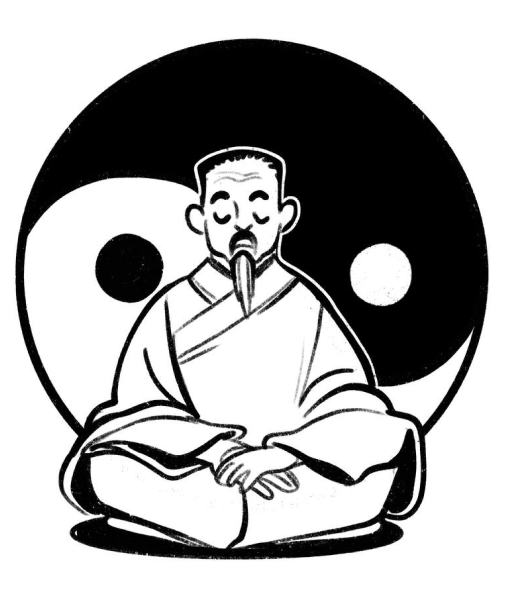
Thus, it turns out that Daoists are not strictly vegetarians, and their partial avoidance of animal products is related to their cultural traditions and digestive peculiarities.
Myth 2. Hindus abstained from meat in the name of enlightenment
About 40% of the population in India does indeed follow a vegetarian diet, but not due to religious beliefs about spiritual enlightenment — this is a myth created for tourists and those who have come seeking spiritual enrichment and practices. In reality, there are several significant reasons why Hindus have given up meat and consider cows as sacred animals. And the first reason why Hindus became vegetarians is the high cost of meat.
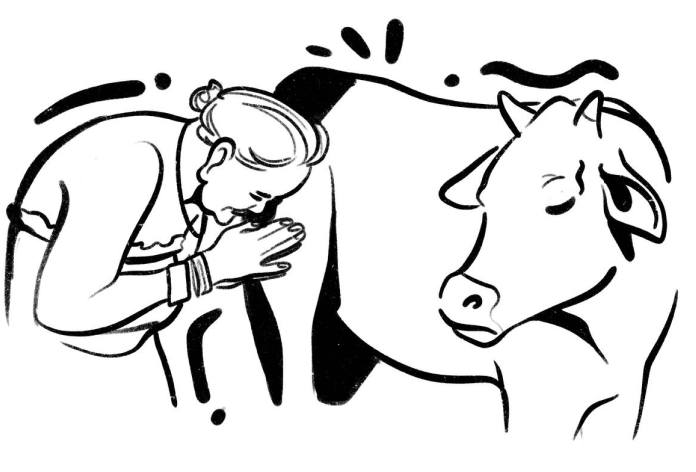
Only wealthy Hindus can afford good quality meat, while the poor population does not have such opportunities, but each of them believes that eating meat is very beneficial for hard work, and it would be foolish to deprive oneself of such an opportunity.
The second reason is the heat. In high temperatures, the body itself does not want to consume heavy foods, preferring fruits and vegetables. The third reason is the absence of refrigerators, which most of the poor population in India have never had.
In hot climates, meat spoils very quickly, not making it from the store to the cooking area in time, and here comes the next reason — the meat from Indian cows is hazardous to health. Not because it blocks the flow of Qi energy, but because it is contaminated with various parasites.
There is absolutely no epidemiological control over the quality of food in India, so there is a high possibility that a piece of meat you eat will kill you, and so quickly that you won’t even make it to the hospital.
As you can see, behind every myth lies a very real reason. In this case, it is the weak social policy of a developing state and a large portion of the poor population.
Myth 3. In Buddhism, the liberation of the Soul begins with vegetarianism
If you carefully study the history of Buddhism, which by all beliefs prohibits eating meat, you can discover some very interesting moments: in Buddhism, there are still debates about vegetarianism. There are Buddhist vegetarians who have given up meat and fish, there are Buddhist vegans who do not consume any animal-derived food, including dairy products and eggs. And there are Buddhists who eat meat.
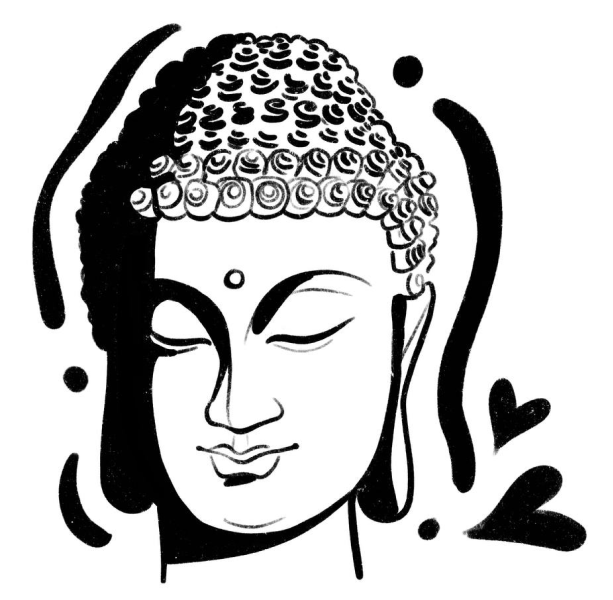
The story goes that the Buddha himself was lenient when it came to eating meat: he allowed some of his followers and disciples to eat meat if he saw it as a necessity for the person. However, to true followers of the bodhisattva, he advised against eating meat out of compassion for all living beings, and, by the way, this applied not only to animals, but also to insects. Killing mosquitoes and flies was highly discouraged, as they are living beings too.
Buddha did not prohibit his followers from consuming meat, allowing each individual to make their own choice. This demonstrated Buddha’s compassion for individuals residing in regions where meat was the primary food source, as becoming vegetarian was not possible under such circumstances.
Furthermore, Buddhists recognised that certain individuals may not be suited for a strict vegetarian diet based on their body type or health condition.
Therefore, Buddhism promotes the following principle: if your health permits abstaining from meat or reducing its intake, or if you have access to alternative food options in your area, it is beneficial to consider transitioning to a vegetarian diet
How about dividing into the very beginning of the history of Homo sapiens and trace the myths that were once born and have become reality today?
Myth 4: Neanderthals were vegans
Anthropologists believe that the glorious ancestors of modern humans, the Neanderthals, were primarily vegetarians who consumed roots, nuts and mushrooms. Prior to 2012 it was widely believed that Neanderthals consumed mainly meat. However, scientists have managed to find out, using the latest methods of studying bones and other archaeological finds, that most of the diet of ancient humans primarily consisted of plants.
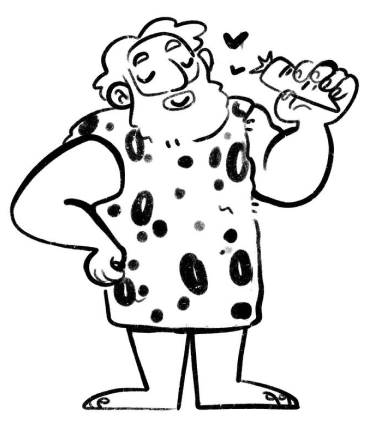
Of course, our ancestors were eating meat on occasion, but its procurement was laborious and perilous. Hunting did not always yield successful results, requiring significant effort to capture animals, making such endeavours infrequent. It was much more convenient to gather berries, roots and consume them, seasoned with nuts. This way, they were satiated and unharmed.
The scarcity of meat did not imply that humans did not require it. In a study conducted in 2012, based on the examination of the skull structure of ancient humans, scientists put forward the hypothesis: “perhaps human evolution occurred primarily due to a high-calorie diet provided by meat rather than plants.”
We cannot claim that our ancient ancestors were strictly carnivores or herbivores. While it is true that early humans preferred plants and nuts, it was largely due to the challenges involved in hunting for meat, which was arduous, risky, and required significant energy expenditure.
Myth 5. Egypt is the founder of vegetarian culture
Research conducted by anthropologists has shown that the ancient Egyptians opted for vegetables and grains rather than fish and meat, despite Egypt’s location on the banks of the mighty Nile River, which makes this fact quite peculiar. Scientists explain these preferences by religious reasons: many fish and animals were considered sacred. The Egyptians believed in the reincarnation of the soul not only from human to human, but also from human to animal or fish.
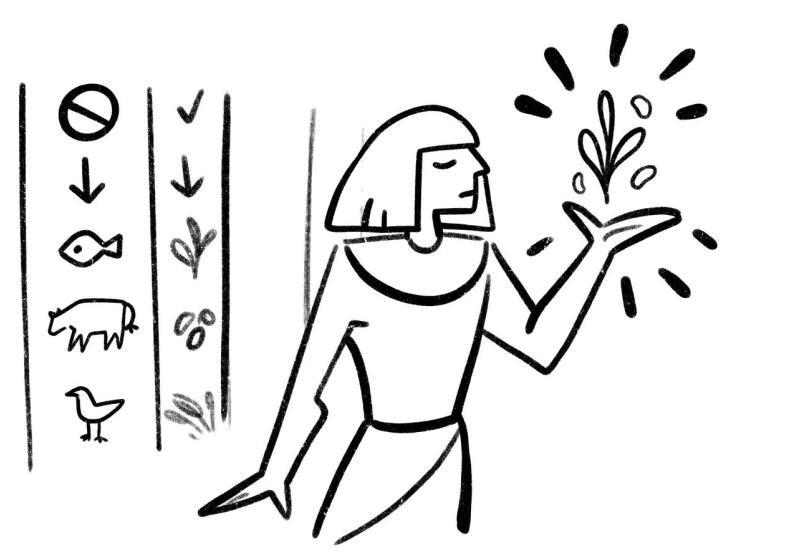
Viewing Egypt’s history through the lenses of economics, politics, and geography rather than solely through the prism of religion, leads to the assumption that fertile soil was only in the valleys of the Nile River, furthermore the land was dead, and not suitable for growing vegetables and fruits. In a situation of overpopulation, a prevalent issue in Egypt, sustaining the population solely on vegetables and grains would have been unattainable.
Perhaps by prohibiting people from eating fish and meat, priests and rulers were trying to tackle the problem of overpopulation: making some as obedient as slaves, while others were ultimately starved to death.
In contemporary times, we compensate for the deficiency of important nutrients that contribute to better functioning of the body and brain with vitamins, but in those days, the lack of meat and fish in the diet made the ancient Egyptians weak and obedient. After all, in conditions of hunger, a person is no longer able to think about anything other than survival.
Surviving under the scorching sun in harsh working conditions was challenging, especially since instead of water, the Egyptians were given wine or beer to drink. Health was no longer the priority here; survival was key. The priests themselves consumed both meat and fish, tasting and assessing their quality before offering them to the gods.
Rulers also consumed the meat of animals and sacred fish during grand celebrations. Additionally, there are known facts that the Egyptians knew how to dry fish and meat, allowing them to preserve these products longer in the constant heat.
When it comes to Egypt as the founder of vegetarianism, doubts arise: was vegetarianism truly solely a religious concern for the souls of the deceased? Or was the rejection of meat a political tool to address the pressing issue of overpopulation? After all, the more people there are, the more carefully they need to be controlled. And it is easiest to control those who do not even consider that things could be different.
Myth 6: If you do not consume meat, you become more humane
Scientists agree that Pythagoras was the first vegetarian on moral and ethical grounds: he only ate plant-based foods that had not been subjected to thermal processing. His main idea was compassion towards living beings. He believed that the destruction of any living creatures incapable of resisting humans would not bring health or peace to people. Pythagoras claimed that as long as people continue to kill animals, they will continue to kill each other, therefore sowing the seeds of murder and pain will not yield joy and love.

Pythagorasalso believed in the reincarnation of souls, considering that after the death of a living being, its soul returns to the world and inhabits a new body. Part of Pythagoras’ abstention from meat was explained by his belief that animals possess souls that may have once belonged to humans. His approach was influenced by the 22 years he spent in Egypt, where he learned about their culture of reincarnation and reverence for sacred animals.
Pythagoras established a whole community of like-minded individuals who called themselves Pythagoreans. They were exclusive: to join the community, one had to undergo a strict selection process that not everyone could meet. The Pythagoreans used secret signs and symbols, appeared arrogant, and did not share the Greeks’ common beliefs about life and death. They openly and aggressively advocated for abstaining from animal food, stating that anyone who consumes meat is a murderer. Due to their strict beliefs and complex relationships with other members of society, their community was burned down, and a large part of their followers perished.
Today, in modern society, there is a similar opinion about vegetarians: they are considered cruel, aggressive, and fanatical people, not towards animals, but towards humans.
Can we say that by not consuming meat we become more humane? It is unlikely. Does giving up animal food affect kindness and compassion towards animals? Also no. There are many people who, while eating meat, save lives not only of humans but also animals.
Among vegetarians, the question of the mental health of some of their followers is raised, which creates new currents that are frankly harmful to health, up to death.
The rules of adequate vegetarianism say: “It is important to have a reasonable approach and not to impose your ideological beliefs on those who disagree with them”.
Myth 7: Vegetarianism as a trend emerged recently
Officially, vegetarianism has been around for 177 years. In 1847, the “British Vegetarian Society” introduced the term “vegetarian.” The term “vegetarian” originated from the English word “vegetable.” The first European vegetarians who adhered to the ideology of the Pythagoreans were part of this society. In the 1860s, two vegetarian societies emerged in Germany, in 1894 in Sweden, and in 1899 in France.
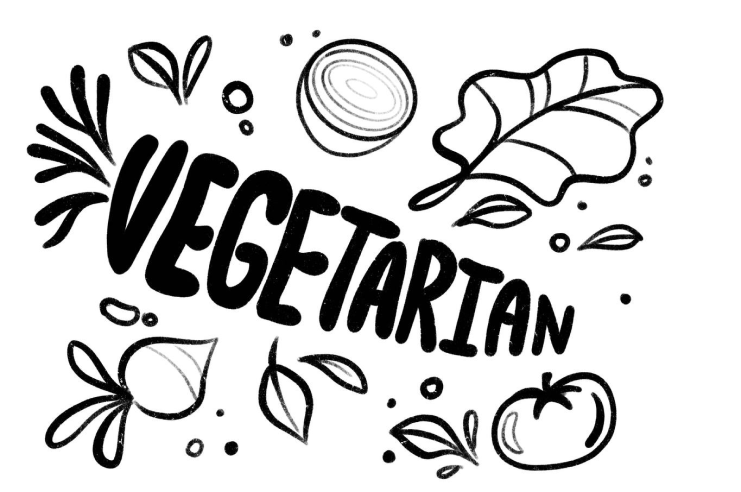
Myth 8: Russia has no connection to the culture and development of the global vegetarian movement
In the 1880s, vegetarianism gained popularity in Russia. The main ideologist of vegetarianism was the writer and philosopher Leo Tolstoy. Of course, he had his followers, well-known figures in culture and creativity — publisher Vladimir Chertkov, historian Sergey Solovyov, writer Nikolai Leskov, artists Ilya Repin and Nikolai Ge, artist and philosopher Nicholas Roerich.
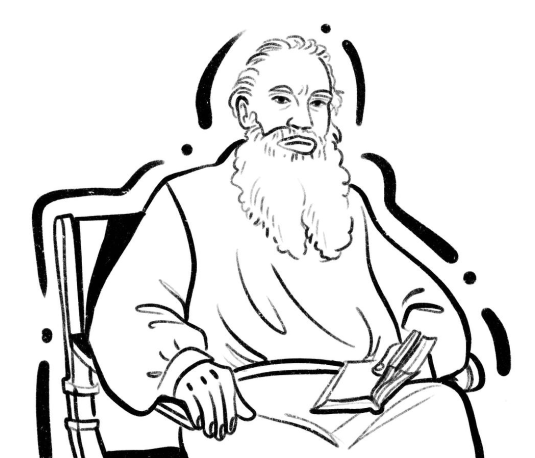
Russian vegetarians were divided into “non-killers” and “hygienists.” The former abstained from meat out of compassion for animals and a desire to transform the world into a more humane place, while the latter gave up meat due to the greater benefits of plant-based food for human health.
For Russian vegetarians, the biblical principle “thou shalt not kill” served as a guiding belief. There was a long-standing serious confrontation between hygienists and non-killers: non-killer vegetarians looked down on hygienists, labelling them as “stomach vegetarians.”
In Russia, books and periodicals dedicated to vegetarianism were published, public lectures were held, and debates were organised. Vegetarian restaurants were opening everywhere and quickly gaining popularity.
Subsequently, societies of non-killer vegetarians were deemed parasitic for the Soviet people and disbanded: builders of communism were expected to adhere to a meat-eating diet.
Russia’s influence on vegetarianism played a significant role, dividing vegetarians into those who abstain from meat for humane reasons and those who do so for health preservation. Not consuming meat for the sake of health is more honest than giving it up in the name of pseudo-concern for the animal world.
Myth 9: Vegetarianism protects the environment
The American vegetarian association, on the contrary, existed for a very long time. Many famous Americans were members, such as Lucy Stone, an ardent defender of the women’s rights, playwright Bernard Shaw, promoter of a healthy lifestyle and inventor of cornflakes John Kellogg. The American Vegetarian Party was created on the basis of the Vegetarian Partnership, which even nominated its candidate for the 1964 presidential election.
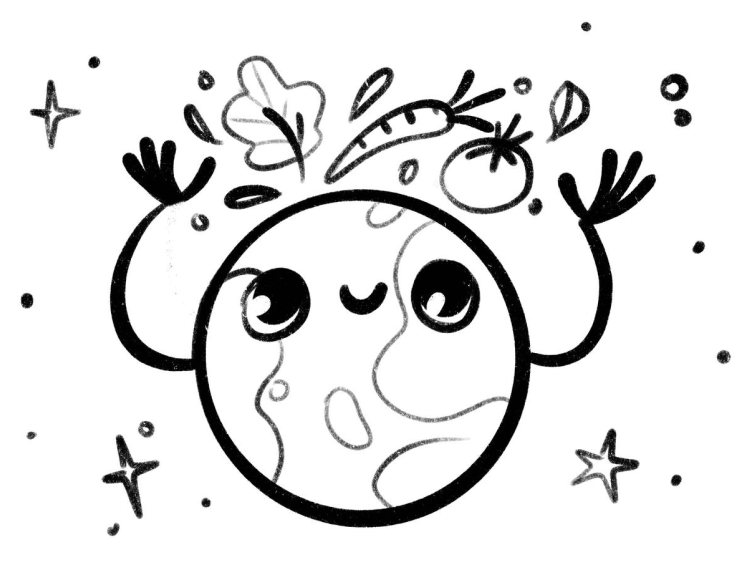
In 1971, American writer and food policy researcher Frances Moore Lappé released the book “Diet for a Small Planet,” in which she advocated for a vegetarian diet not for ethical or moral reasons, but for ecological ones. She argued that the cultivation of plant-based foods has much less negative impact on the environment than meat production.
Another author who had a significant influence on the vegetarian movement was Peter Singer, who wrote the book “Animal Liberation” in 1975. Both books became bestsellers and served as manifestos for the vegetarian movement in the Western world, also laying the foundation for the ideology that vegetarianism will save the world from hunger.
The next step in the attempt to save the world from hunger was the development of GMOs (Genetically Modified Organism) sparking numerous debates about the benefits or, conversely, the catastrophic impact of genetic modification on the health of future generations.
But what if we were to view the question of giving up meat in favour of vegetables as another marketing project? To grow vegetables and fruits in the required quantities and often in less-than-ideal conditions, large amounts of fertilisers are needed. For instance, to grow 1 kilogram of vegetables, 5 kilograms of fertilisers are needed per square meter of land. This figure is impressive, even when calculated in hectares. Additionally, fertilisers contain a lot of chemicals that not only enter the soil but also directly into the plant’s fruit.
So, which has a greater negative impact on the environment — meat production or vegetable cultivation? And can we confidently say that fruits grown on mass chemical fertilisers have a beneficial effect on our bodies?
So what is really behind any widely promoted idea, including vegetarianism?
Politics, economics, profit, power, manipulation, marketing: anything but caring for animals and human health.
Therefore, before supporting vegetarianism, try to ask yourself the question: why do I want to give up meat? Why have I already refused to eat meat? Am I humane enough not to eat meat for the sake of animal protection? Do I gain freedom of mind when I become a vegetarian?
Being humane is possible even without giving up meat. Saving animals can be done without the permission of “green” organisations. Being compassionate can happen just like that. There are many paths to enlightenment.
Whether you eat meat or not is not important. The main thing is to remain a rational, critically thinking human being amid all the intricacies and manipulations, understanding your true values and needs.
In any case, in any matter, in any choice, in any insistence and affirmation, it is worth remembering the words of Buddha: “Man should learn the mysteries of life from himself, rather than blindly trusting in other teachings.”
We illuminate scientific horizons with an intensity that rivals a laser.
Thank you!




